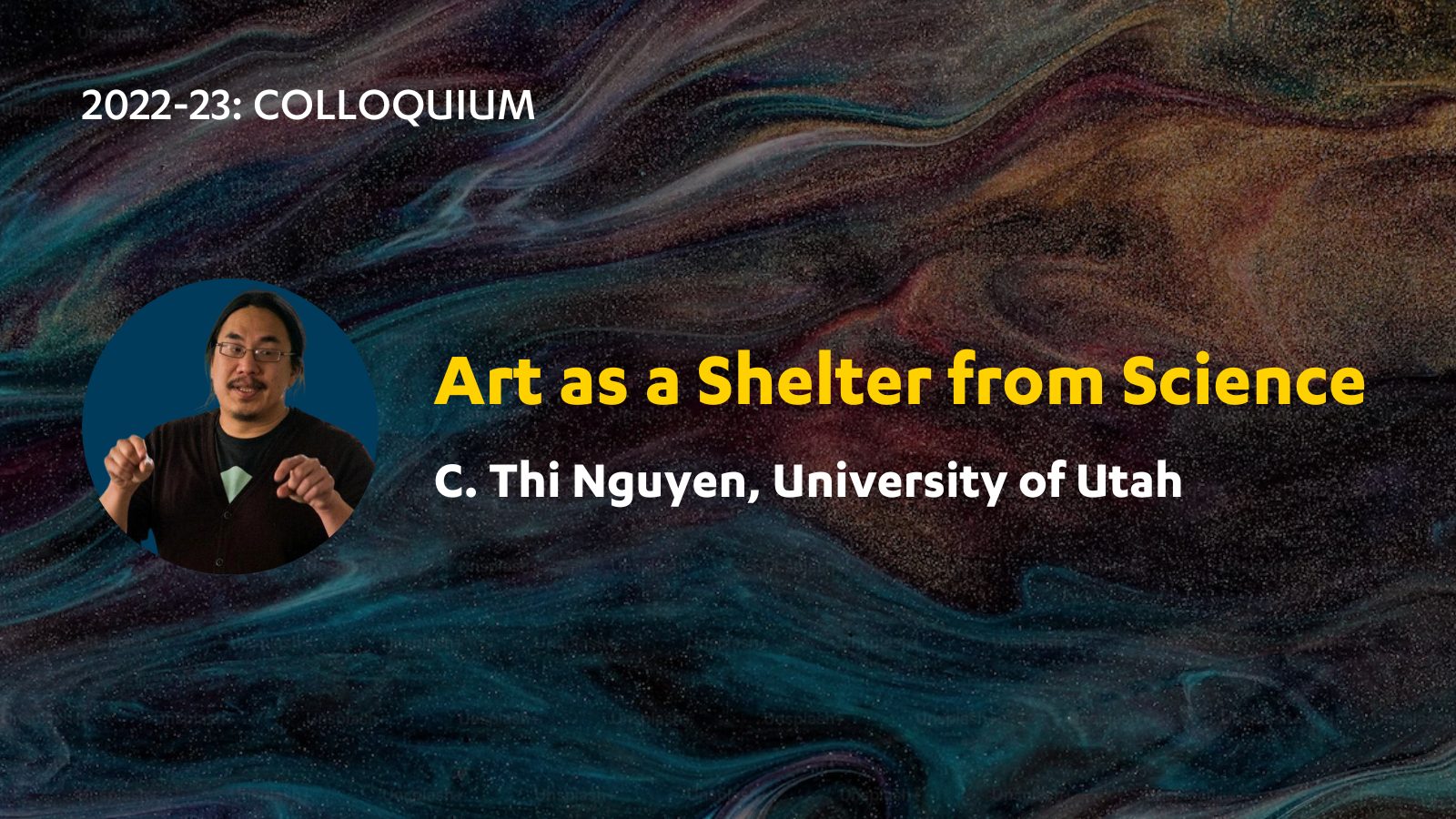
- This event has passed.
2022-23 Colloquium: “Art as a Shelter from Science”

May 26, 2023 | 4:00PM – 6:00PM
Royce 314
Zoom link: https://ucla.zoom.us/j/99826733700?pwd=cGUvN1ZzdXdrZmVibElaVVRTZnJTZz09
RSVP HERE
Join us on May 26, 2023 for a colloquium with C. Thi Nguyen, University of Utah. The talk will take place in Royce 314 from 4:00PM – 6:00PM with a reception on the Royce Patio (3rd floor) to follow.
RSVP HERE
Art as a Shelter from Science
Aesthetic judgment is different from scientific judgment. For many, a key difference is that aesthetic judgment does not proceed via inferences. We cannot infer the existence of an aesthetic property based on the application of a rule. We must see for ourselves if some arrangement of lines and colors is, in fact, graceful. But we also give, exchange, and demand of each other reasons for our judgments about aesthetic properties. What kind of property could be non-inferential, but, at the same time, subject to reasons? I would like to present a new solution: that non-inferentialism about aesthetic properties is not a some mysterious metaphysical feature of aesthetic properties, but is rather a norm of a social practice. When we accept this rule, the activity of aesthetic appreciation goes better in a few ways. First, it drives the appreciator’s attention towards looking at particular details in a work, rather than looking for recurring statistical regularities or abstract principles. This prevents a purely scientific approach to aesthetic judgment, and drives the appreciator towards a detail-oriented perception of a work’s particularities. It drives conversants to continue to sensuously attend to works, rather than shifting to more abstract methods of inquiry such as the philosophical search for first principles, or the scientific study of aggregate regularities in perception. Second, it sculpts a particular kind of interaction: open-ended exchanges of reasons which motivate the conversants to return to attending to the work. The value of the activity of aesthetic appreciation turns out to be quite distinct from that of, say, science. The goal is not the accumulation of true knowledge, but fostering engagement in a particular valuable human activity. Perhaps we don’t disagree about art to get to the truth, but we construct our artworks and art practices to foster endless, satisfying disagreement.
C. Thi Nguyen is Associate Professor of Philosophy at the University of Utah. His research concerns aesthetics and social epistemology; he has written about trust, games, echo chambers, cultural appropriation, and the ethics of transparency. His first book is Games: Agency as Art (OUP).
Join our mailing list
Sign up for our mailing list to stay up-to-date with future UCLA Philosophy events, conferences, and colloquia!

